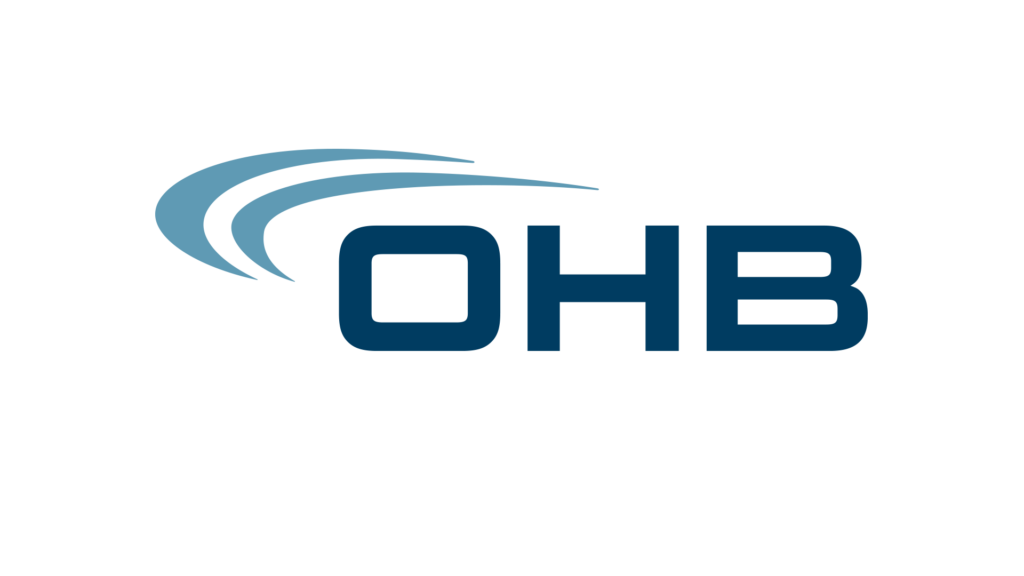Forget the mundane office meetups. Workplace social events are the secret sauce to a thriving company culture and happy employees. These events are not just about fun; they're about forging meaningful connections, boosting team spirit, and enhancing employee satisfaction and loyalty. Whether you're diving into your first office bash or revamping your social calendar, this guide is your ticket to understanding the transformative power of workplace social events and crafting unforgettable experiences.
Workplace social events aren't just about fun—they're about creating the human connections that power successful organizations.
Why Workplace Social Events Matter in 2025
The workplace has transformed dramatically in recent years, with hybrid and remote work becoming standard for many organizations. This shift has created new challenges for maintaining company culture and employee connections. Workplace social events have emerged as critical tools for bridging these gaps, providing structured opportunities for team members to interact beyond work-related tasks.
Research shows that companies with strong social connections experience 21% higher productivity and 59% lower turnover rates. When employees feel connected to their colleagues, they're more engaged, collaborative, and loyal to their organizations. In fact, 72% of employees say that having friends at work makes them more satisfied with their jobs.
Workplace social events serve multiple purposes:
- Building relationships across departments
- Integrating new employees into the company culture
- Recognizing achievements and celebrating milestones
- Reducing stress and preventing burnout
- Fostering creativity and innovation through informal interactions
As we navigate increasingly digital workplaces, the human element that social events provide has never been more valuable. Let's explore how to create effective workplace social events that strengthen your organization's social fabric.
Types of Workplace Social Events: Finding the Right Fit

Workplace social events come in many forms, each serving different purposes and appealing to various preferences. Understanding the types of events available helps you create a balanced social calendar that engages your entire workforce.
In-Office Events
These events take place within your workplace and are often easier to organize and more accessible to employees:
- Office celebrations - Holiday parties, company anniversaries, and milestone achievements
- Themed days - Costume contests, cultural appreciation days, or decade-themed gatherings
- Learning events - Workshops, lunch-and-learns, or skill-sharing sessions
- Wellness activities - Yoga classes, meditation sessions, or health challenges
- Game tournaments - Board games, trivia contests, or office Olympics
Off-Site Activities
Taking employees outside the office creates new environments for connection:
- Team retreats - Overnight or multi-day experiences focused on team building
- Outdoor adventures - Hiking trips, sports tournaments, or adventure parks
- Cultural outings - Museum visits, concerts, or theater performances
- Volunteer opportunities - Community service projects or charity events
- Culinary experiences - Cooking classes, food tours, or restaurant outings
Virtual Events
Essential for remote or distributed teams:
- Online game nights - Virtual trivia, digital escape rooms, or online board games
- Remote happy hours - Casual video gatherings with optional drinks
- Virtual workshops - Guided activities like painting, cooking, or crafting
- Digital wellness sessions - Online fitness classes or meditation sessions
- Remote team challenges - Photo contests, step challenges, or collaborative projects
The most effective approach is to offer a mix of these event types, catering to different preferences and ensuring inclusivity for all team members, regardless of location or personal circumstances.
Planning Successful Workplace Social Events: A Step-by-Step Guide
Creating memorable workplace social events requires thoughtful planning and execution. Follow these steps to ensure your events achieve their intended goals.
1. Define Clear Objectives
Before planning any event, establish what you hope to accomplish:
- Are you trying to improve cross-departmental relationships?
- Do you want to celebrate recent achievements?
- Is your goal to provide stress relief during a busy period?
- Are you looking to integrate new team members?
Clear objectives will guide your decisions throughout the planning process.
2. Know Your Audience
Understanding your team's preferences is crucial for event success:
- Conduct surveys to gather input on preferred activities and timing
- Consider demographics and ensure activities are inclusive for all ages and abilities
- Respect cultural differences and avoid scheduling conflicts with religious or cultural observances
- Account for personality types by including options for both extroverts and introverts
3. Create a Balanced Calendar
Develop a social event calendar that provides regular opportunities for connection:
| Event Frequency | Type of Event | Purpose |
|---|---|---|
| Weekly | Small-scale activities (coffee chats, lunch groups) | Maintain regular connection |
| Monthly | Department or team gatherings | Foster team cohesion |
| Quarterly | Company-wide celebrations | Build organizational culture |
| Annually | Major events (holiday parties, retreats) | Create memorable experiences |
4. Budget Appropriately
Allocate resources effectively to maximize impact:
- Determine your annual social event budget
- Prioritize events based on strategic importance
- Consider cost-effective options for regular events
- Reserve larger budgets for milestone celebrations
- Track ROI through post-event surveys and engagement metrics
5. Execute Flawlessly
Pay attention to logistics to ensure smooth execution:
- Choose appropriate timing that works for most team members
- Select accessible venues for in-person events
- Test technology in advance for virtual gatherings
- Plan for dietary restrictions when food is involved
- Communicate clearly about expectations and details
The most successful workplace social events feel natural and authentic, creating spaces where genuine connections can flourish.
Overcoming Common Challenges in Workplace Social Events
Even the best-planned workplace social events can face obstacles. Here are strategies for addressing common challenges:
Low Participation
If attendance is lower than expected:
- Survey non-participants to understand barriers
- Vary event timing to accommodate different schedules
- Create FOMO by sharing highlights from previous events
- Offer incentives for attendance without making events mandatory
Budget Constraints
When resources are limited:
- Focus on low-cost, high-impact activities like potlucks or outdoor gatherings
- Partner with local businesses for discounts or sponsorships
- Rotate responsibility for planning smaller events among teams
- Leverage employee talents for workshops or activities
Remote or Hybrid Teams
For geographically dispersed workforces:
- Create hybrid experiences that work for both in-person and remote participants
- Ship event kits to remote employees for shared experiences
- Schedule events across time zones or record for asynchronous participation
- Use technology creatively to foster real-time interaction
Diverse Preferences
When team members have varying interests:
- Rotate event types to appeal to different groups over time
- Offer simultaneous activities during larger gatherings
- Create affinity groups for specialized interests
- Provide options for different engagement levels at each event
Measuring the Impact of Workplace Social Events
To justify investment in workplace social events and continuously improve your approach, establish metrics for success:
- Attendance and participation rates
- Post-event satisfaction surveys
- Changes in employee engagement scores
- Retention rates among event participants vs. non-participants
- Qualitative feedback and testimonials
Track these metrics over time to identify trends and refine your social event strategy accordingly.
| Metric | Measurement Method | Target |
|---|---|---|
| Participation Rate | Attendance / Total Employees | >70% |
| Satisfaction Score | Post-event survey (1-10 scale) | >8.0 |
| Cross-department Connections | Number of new connections reported | 3+ per employee |
| Engagement Impact | Change in engagement scores | +5% increase |
Innovative Workplace Social Event Ideas for 2025
Looking for fresh ideas to energize your workplace social calendar? Here are some innovative approaches gaining popularity in 2025:
1. Micro-Events
Brief, focused gatherings that require minimal time commitment but create regular touchpoints:
- 15-minute virtual coffee breaks
- Quick team challenges
- "Walk and talk" meetings
2. Skill-Sharing Festivals
Events where employees teach each other their unique skills:
- Cooking demonstrations
- Language lessons
- Creative workshops
- Tech tutorials
3. Wellness Challenges
Competitions that promote health while building camaraderie:
- Step challenges
- Meditation streaks
- Healthy recipe exchanges
- Sleep improvement contests
4. Impact Projects
Social events centered around making a difference:
- Community clean-ups
- Fundraising competitions
- Skill-based volunteering
- Sustainability initiatives
Neroia's AI-powered platform has revolutionized how companies approach these social connections, particularly in hybrid and remote environments. By analyzing employee interests and schedules, Neroia suggests personalized activities that bring together small groups of colleagues with shared interests, creating organic opportunities for meaningful connection rather than forced interactions.
Creating Inclusive Workplace Social Events
For workplace social events to truly strengthen your culture, they must be inclusive and accessible to all team members. Consider these strategies:
Accommodate Different Needs
- Provide options for various physical abilities
- Consider sensory sensitivities in venue and activity selection
- Respect dietary restrictions and preferences
- Offer alcohol-free alternatives at all events
Consider Work-Life Balance
- Schedule events during work hours when possible
- Provide adequate notice for after-hours gatherings
- Respect family commitments
- Create child-friendly options for appropriate events
Embrace Cultural Diversity
- Celebrate various cultural traditions
- Be mindful of religious observances and holidays
- Incorporate diverse cuisines and activities
- Create opportunities for cultural exchange and learning
Support Different Personality Types
- Balance group activities with quieter interactions
- Create both structured and unstructured social time
- Avoid putting people on the spot
- Provide advance information about activities for those who prefer preparation
The Future of Workplace Social Events: Trends to Watch

As workplace dynamics continue to evolve, so do approaches to social events. Here are emerging trends shaping the future:
- AI-Facilitated Connections: Using technology to match employees with similar interests for micro-gatherings
- Immersive Experiences: Leveraging VR and AR to create shared virtual environments for remote teams
- Wellness Integration: Blending social connection with physical and mental wellbeing activities
- Purpose-Driven Gatherings: Aligning social events with company values and social impact initiatives
- Personalization at Scale: Creating customized social experiences based on individual preferences while maintaining group cohesion
Companies at the forefront of workplace culture are embracing these trends to create more meaningful, effective social experiences for their teams.
Case Study: Transforming Company Culture Through Social Events
A mid-sized technology company struggled with siloed departments and high turnover among new employees. After implementing a strategic approach to workplace social events, they saw remarkable improvements:
Their approach included:
- Monthly cross-departmental challenges that mixed teams from different areas
- New hire buddy program with regular social check-ins
- Quarterly off-site adventures focused on collaborative problem-solving
- Weekly virtual coffee roulette matching employees for casual conversations
After one year, the company reported:
- 34% increase in cross-departmental collaboration
- 28% reduction in new hire turnover
- 41% improvement in employee satisfaction scores
- 17% increase in innovation metrics
The key to their success was consistency and intentionality—treating social events as strategic investments rather than optional add-ons.
How Technology is Revolutionizing Workplace Social Events
Technology is transforming how companies approach social connection in the workplace. Innovative platforms are making it easier to organize, personalize, and measure the impact of social events.
Neroia provides a social employee benefits platform designed to foster organic connections among coworkers. Its AI-powered system suggests activities (sports, wellness, cultural events) tailored to individual employee interests and schedules, facilitating small-group gatherings and breaking down departmental silos. This approach addresses a fundamental challenge in workplace social events: creating authentic connections that feel natural rather than forced.
By analyzing data on employee preferences and availability, platforms like Neroia can recommend micro-events that bring together colleagues with shared interests, creating more meaningful interactions than traditional large-scale gatherings. This personalized approach is particularly valuable in hybrid and remote work environments, where spontaneous social interactions are less common.
Best Practices for Workplace Social Events in Different Settings
The approach to workplace social events varies based on your work environment. Here are tailored recommendations for different settings:
For Traditional Office Environments
- Leverage your physical space for impromptu gatherings
- Create dedicated social areas that encourage interaction
- Implement "no meeting" blocks for social connection
- Establish rituals like team lunches or celebration ceremonies
For Hybrid Workplaces
- Design events with both in-person and remote components
- Invest in quality audio-visual equipment for seamless integration
- Create equal participation opportunities regardless of location
- Alternate between virtual and in-person gatherings
For Fully Remote Teams
- Send physical items to create shared experiences
- Establish virtual water cooler channels
- Schedule regular video social events with interactive components
- Consider regional micro-gatherings where geography permits
For Global Organizations
- Rotate event timing to accommodate different time zones
- Celebrate diverse cultural holidays and traditions
- Create asynchronous social activities
- Facilitate language exchange opportunities
Conclusion: Building a Stronger Workplace Through Intentional Social Connection
Workplace social events are far more than just fun diversions—they're strategic investments in your organization's culture, productivity, and resilience. By thoughtfully designing experiences that foster genuine connection, you create a foundation for collaboration, innovation, and employee satisfaction.
The most successful approach combines structure with authenticity, creating frameworks for interaction while allowing relationships to develop naturally. As work environments continue to evolve, the organizations that thrive will be those that prioritize human connection alongside business objectives.
Neroia's platform exemplifies this evolution, moving beyond traditional workplace social events to create organic, interest-based connections that feel natural and meaningful. By breaking down departmental silos and facilitating small-group interactions based on shared interests, Neroia helps companies build stronger workplace communities where employees feel truly connected to their colleagues.
In today's competitive talent landscape, creating a workplace where people feel genuinely connected isn't just nice to have—it's a business imperative. Start building your strategic approach to workplace social events today, and watch as your organization's culture, engagement, and performance transform.
The quality of your workplace relationships determines the quality of your work. Invest in connection, and everything else follows.




